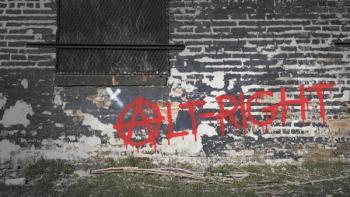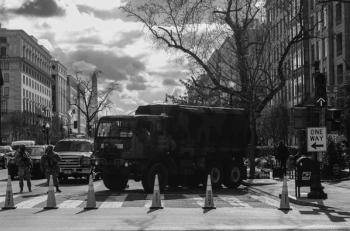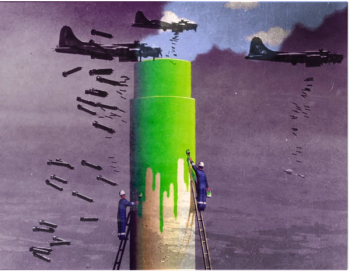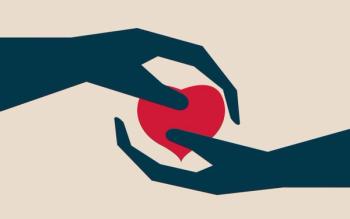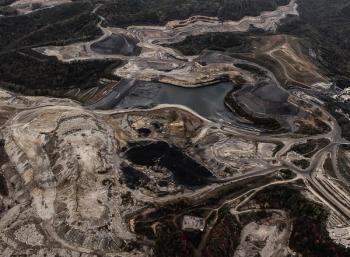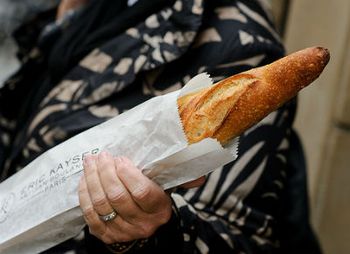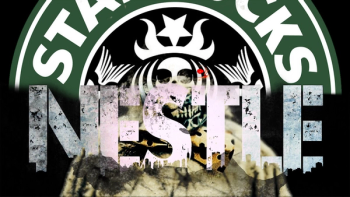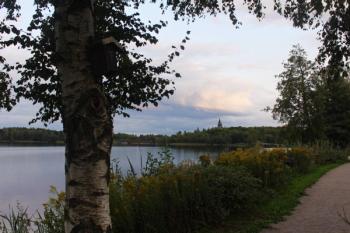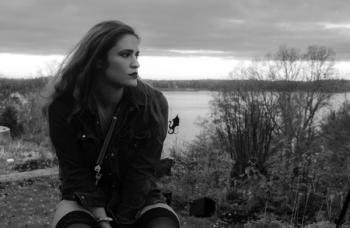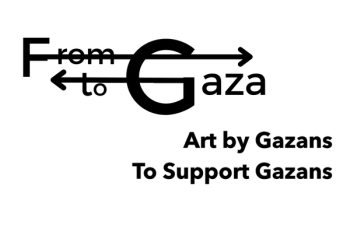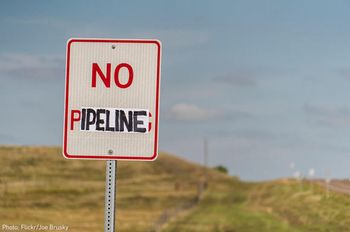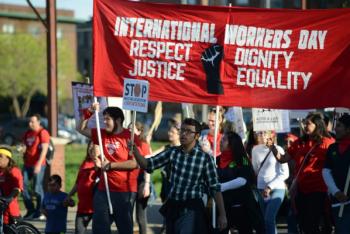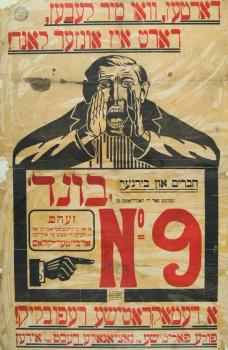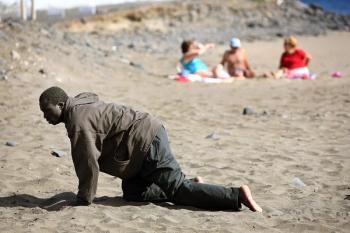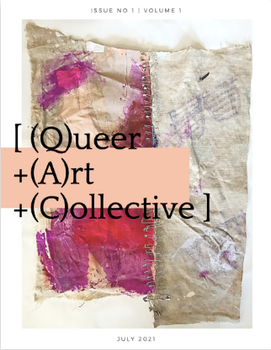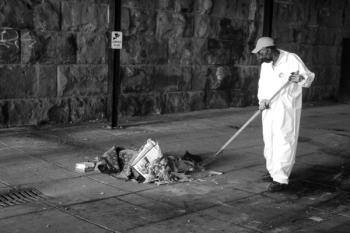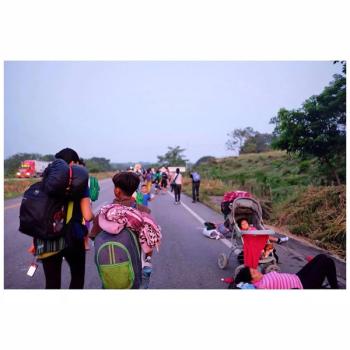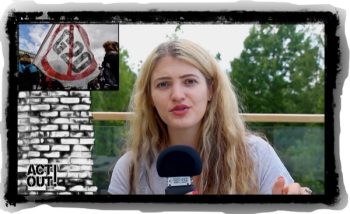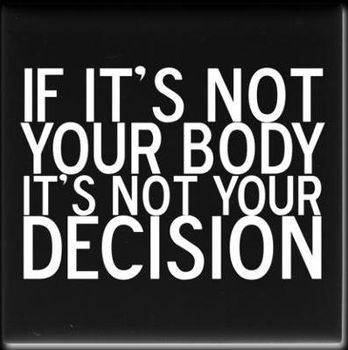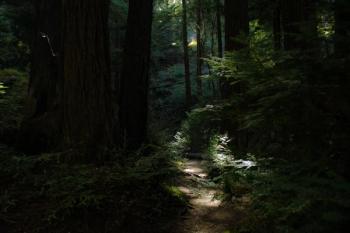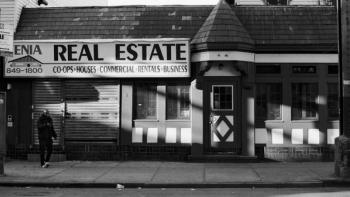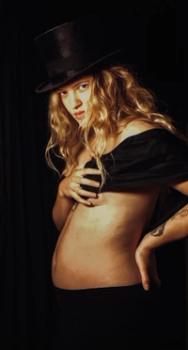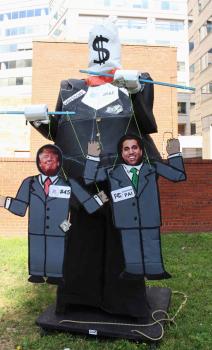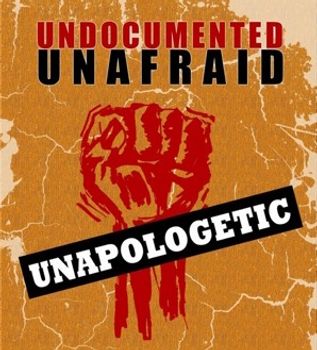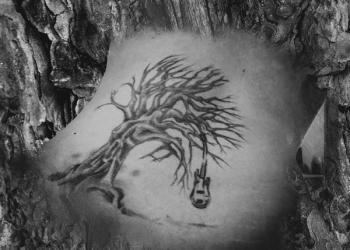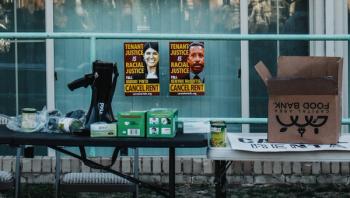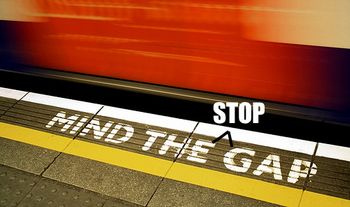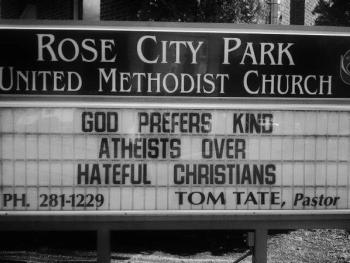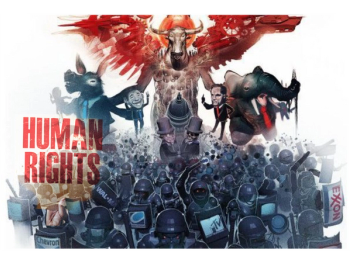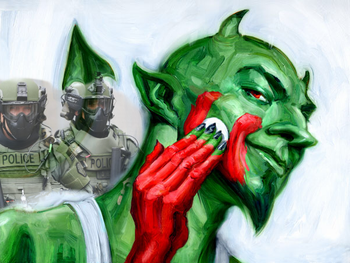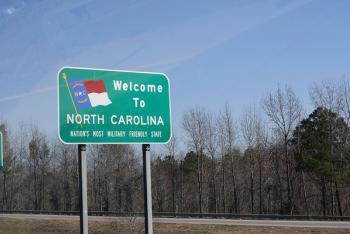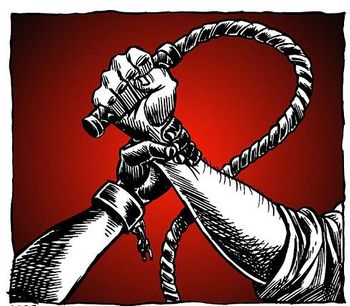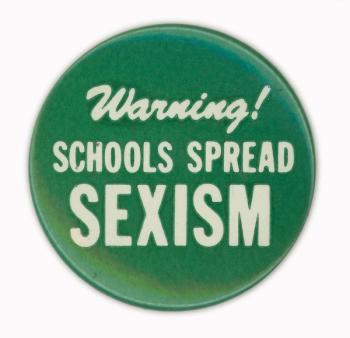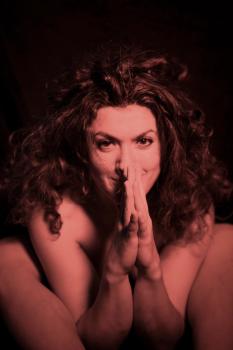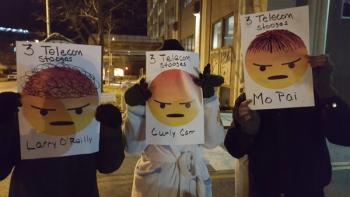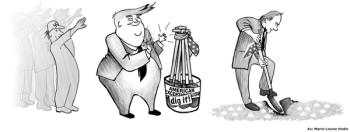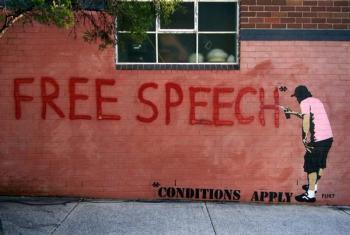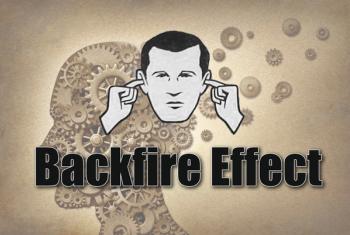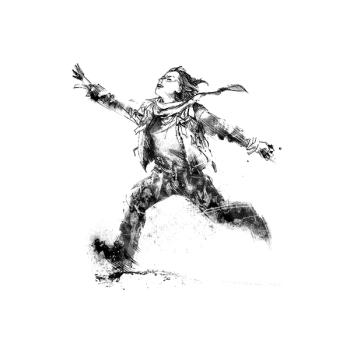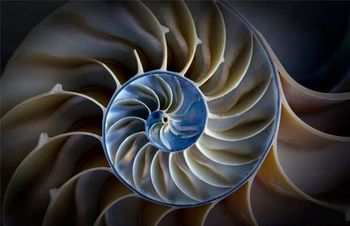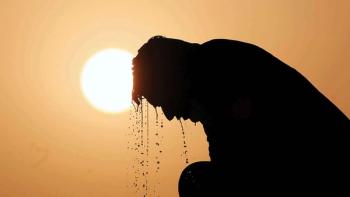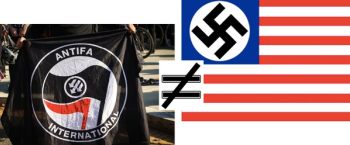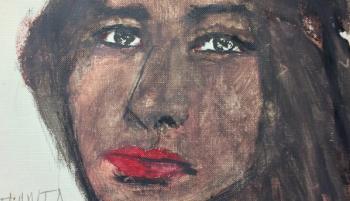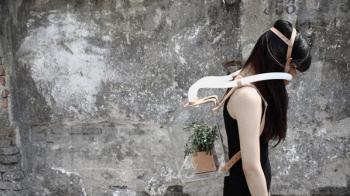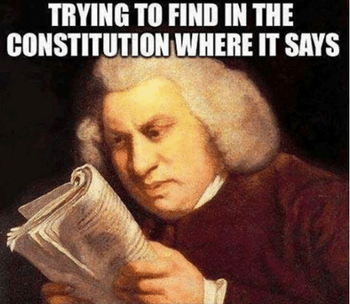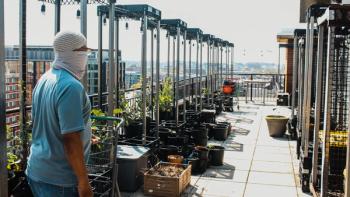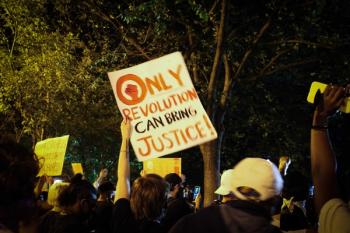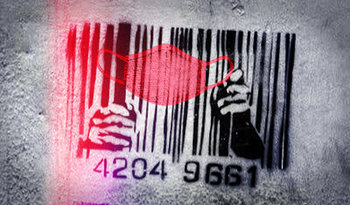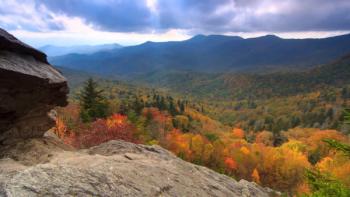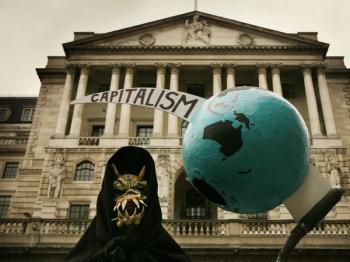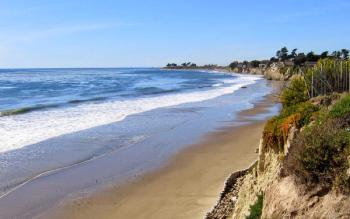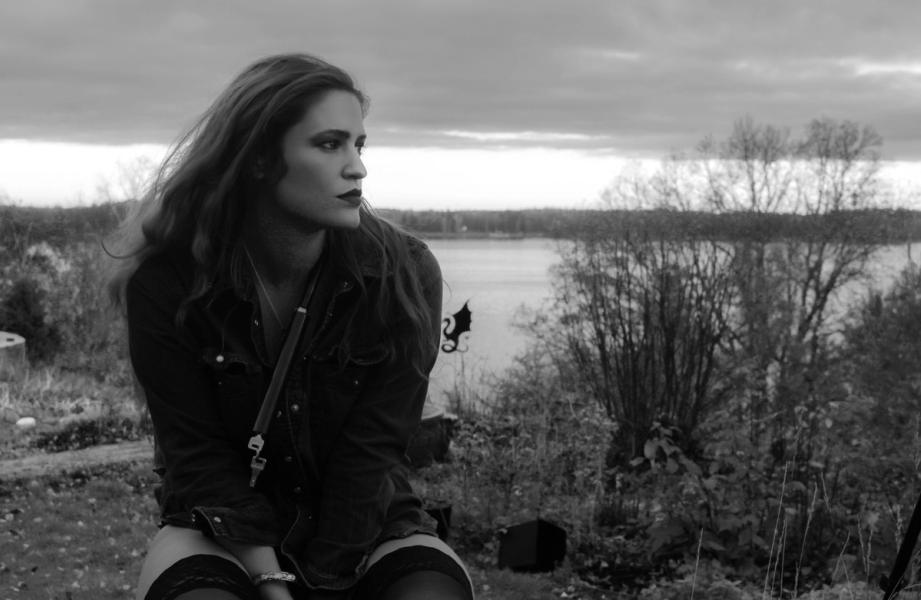
Cosmopolitan Anarchist
2023-01-16
by Eleanor Goldfield
fucking anarchist witch cunt.
I admit it took me a second to recognize it as an insult. It sounded at first like something that might follow “work that...” like a woman in downtown LA had yelled at me “witchy bitch, I see you – work it!” It's not that I identify as a witch, or even necessarily an anarchist. Sometimes I definitely identify as a cunt but not typically when I'm having a cup of coffee and lazily scrolling through twitter. It just seemed so punchily obstinate that I warmed to it. And yet of course, the person who wrote it was so dully conformist that those words strung together were the worst thing he could think to write. Like unAmerican.


Back at the turn of the 20th century, Jews in France were often referred to as 'cosmopolitan anarchists,' a term which again at first blush sounds kinda cool but was of course meant to degrade those on the receiving end. I first read this in John Merriman's book “Ballad of the Anarchist Bandits,” and was immediately smitten. Sadly, I couldn't find any commentary from Jews at the time responding to this supposed dig. I like to think that some of them, like me, liked it. That like that guy on twitter, the would-be dissers ended up pedestaling the radical and worldly ambitions of their foe rather than demeaning them. Whatever the feeling, the actions of these radical Jews didn't change. Perhaps they were simply used to the criticism. After all, being a Jew in turn-of-the-century Europe was in and of itself a sticky situation. Add to that being an outspoken anarchist and leftist organizer and you should be surprised if you don't get called names. Indeed, back then like today, the name-calling means that you're getting to people, people who are themselves offended by the names they call you. It follows then that you would likely be offended if called things that they (either overtly or covertly) admire: patriot, nationalist, white supremacist, imperialist, capitalist, etc.
The embrace of these attempted gibes is therefore a gibe back, a boomerang of the ill and a securement of the good, like getting a joke gift that you actually really enjoy. And like that gift it is then yours to toy with, to pass the words over your heathen tongue like a gumdrop, picking out the flavors that entice you, separating the threads of meaning to weave your own. As I said before, I don't identify as a witch or an anarchist, but I like that these words – sharp daggers to them, are like soft silk on my synapses. I take no offense, and indeed, I like imagining myself wearing these silken labels in front of the offended parties, watching their horrified mouths agape as I, well, as I work it.
There is a lot of fun and games in the twisting of insults, but there is always that pool of malice from which they came, a dark pool that can issue forth more than words. As I write this, the internet (or my corner of it) is awash with grief and anger following the mass shooting at a Colorado gay club. Here in Sweden, a trans friend of mine reached out shortly after the fascist party, the Sweden Democrats won and said, “I'm afraid to walk from the bus stop after work.” About a year ago in DC, mutual aid networks were put on high alert ahead of a white nationalist rally where several black and brown members of the community were attacked. In 2017 in Charlottesville, VA, my partner and I were a few feet away from the terrorist's car that drove full speed into a crowd of anti-fascist protestors, killing one and injuring several more. There have been more drivers, more shooters, more violence – violence that may have started with a trite insult online.
So no, I don't take these words lightly, but I also refuse to be weighed down by them. I certainly don't take fascist violence lightly either – and again, I refuse to let it crush me. From first flutter to deeper think, the embrace of 'cosmopolitan anarchist' is therefore about embracing what these words mean to me (or you, dear reader), letting them dance through my mind for a while, really explore the space, and from there, letting them move me – mentally and physically. Because, as Jean Paul Sartre suggested, philosophy isn't about philosophizing, it's about having the integrity and courage to let what you feel and believe dictate your actions – something that sounds more poetic and easy than it is.
As a word nerd, I'm fascinated with how we can use the same language and mean totally different things. For instance some of you might read the word 'radical' and think of something quite different than what I mean. I mean radical as in roots, which as it happens is the root of the word radical (isn't language just so much fun?!). Radicalism therefore is the action of addressing root causes of oppression, of working together like vast mycelial networks, ecosystems of mutualism. Incidentally, it fits quite nicely with anarchy – anarchy being a radical ideology.
But of course 'anarchy' is fraught with so many varied and contradictory meanings that it would take an encyclopedic endeavor to untangle them all. A lot of this is thanks to propagandization and misuse. Kinda like how Obama wrecked the words 'hope' and 'change,' giving the people no change and therefore very little hope, at least in the establishment. But does that then mean that hope is lost? That the word itself can hold no power, no legitimate raw efficacy? In an interview a couple of years ago, indigenous anarchist Klee Benally said that he has hope, not the Obama kind but “the kind that burns cop cars.” It was a question my SilverThreads podcast cohost carla bergman and I loved asking because of the varied responses we'd get. Even among like-minded folks, a word can be so many different things. Klee identifies as an anarchist. So do several folks I love and admire. Other folks I love and admire don't, and even snub their noses at the word, because it means something totally different to them than it does to me. Some folks I don't like or admire identify as anarchist. The fact that I typically don't identify as an anarchist has a lot to do with these misunderstandings, these murky meanings.
Still, since this isn't an encyclopedic tome or even a philosophical debate on anarchy, I hereby concisely suggest that anarchy is at its core, stripped of all offshoots and factions, anti-oppression from the personal to the global level (as in it does not feel that states are a good thing, likewise the borders that define them geographically). Therefore anarchy is necessarily pro-autonomy, and truly pro-freedom in the sense that Simone deBeauvoir put forward: that you have a right to freedom to the furthest extent so long as it does not infringe on anyone else's same right to freedom. Anarchy believes in horizontal and mutualist organization as a requisite of anti-oppression due to the inherent oppressive nature of man-made hierarchies (one of the many reasons why anarcho-capitalism is an oxymoron, and really only for morons). This is a basic foundation of anarchy and something that I can easily embrace and promote. The arguments both inside and outside of anarchist communities come from either the bastardization of this groundwork concept or the addition of various tenets, often to the point of, ironically, oppressive rigidity.

'Cosmopolitan' is a word that's also misunderstood – tho to far less detriment than the word 'anarchist' – as with all concepts that are predominantly about the rich more-so than the poor. Cosmopolitan in a textbook variant means worldly, sophisticated thought it's oftentimes conflated with snobbish and rich; a person who enjoys feeling better than others, a know-it-all and the kind you invite to the party only in the hopes that they'll bring the best wine, which they inevitably don't because they're keeping it for themselves. But as a proprietor of this phrase, I'm gonna side with the dictionary here and pedestal the worldly and sophisticated without conflating this with snobbery, or material wealth.
So a worldly, sophisticated someone who believes and works towards autonomy, freedom, and the justice only found through non-oppressive practices.
As it happens, this definition does line up rather nicely with the lives and actions of Jews throughout history. Like many oppressed peoples, we have long refused to sit down, shut up or disappear. We are hellions of that nice Christian society, and we'll get down and dirty on the frontlines of a fight just as easily as we'll litigate it.
If you page through the recent history of our people, you will find plenty of radical troublemakers. To name a very few:
- Emma Goldman: called “the most dangerous woman in America” by the FBI. An anarchist feminist author, orator, radical organizer who was deported after her arrest in connection with the Espionage Act (you know that old thing that Obama resurrected to use on whistleblowers and which now has Julian Assange in its crosshairs – yeah, same one!)
- Rosa Luxembourg: anti-war activist and organizer, leader of the German communists and the 1919 uprising where militarists murdered her.
- Clara Lemlich: Ukrainian immigrant and organizer who pushed for worker's rights in US sweatshops, and founded the International Working Women's Day.
- Primo Levi: chemist, author and Holocaust survivor who wrote poetry and prose that is as beautiful as it is terrifying, and prophetic.
- Hanna Arendt: speaking of bad ass authors who survived the Holocaust – Arendt wrote powerful philosophical works that do as much to condemn the totalitarian horrors of the Third Reich as the warn of the repetitive nature of such horrors.
- Denis Goldberg: the only white man to be sent to prison in the Rivonia trial that also saw Nelson Mandela sent to prison for 27 years. Goldberg spent 22 years in prison and once out, picked up right where he left off and kept fighting injustice.
- Arthur Goldreich: also arrested in the Rivonia raid – a South African artist and anti-apartheid activist who hid Nelson Mandela in his home and worked to dismantle apartheid in South Africa while remaining critical of Zionism til his death.
- On that same note, it's worth mentioning that 5 of the 15 arrested in the Rivonia raid and Mandela had multiple Jewish lawyers at his trials and Jewish activists in South Africa threw down hardcore against apartheid there.
- Judith Butler: feminist scholar and so-called grandmother of queer theory
- Abraham Sefarty: militant anti-colonialist Moroccan Jew jailed, tortured and exiled for his tireless campaigning against injustice, first against the French colonial rule then against King Hassan II.
- Emma Lazarus: you may recognize this anti-racist, pro-immigrant poet from the words on the statue of Liberty: “give me your tired, your poor, your huddled masses yearning to breathe free.”
- Judi Bari: American environmentalist who led the Earth First! organization, member of the anarchist trade union IWW, and survived a car bomb (likely planted by the FBI).
And I didn't even mention some of the more obvious ones like Karl Marx, or a personal favorite, Spinoza – or hey, how about Jesus. Indeed, I've only gone back a hundred or so years in a history that spans roughly 6,000 years. And I've only mentioned ones that already have a presence on today's search engines. There are thousands, millions more throughout the ages that won't show up in our digital encyclopedias; purely analog characters whose names are zephyrs in ancient family trees, echoes in forgotten tongues, buried deep for safety, for getting...a cast who circles the spotlight, their contributions visible only in the differences, the fact that things got better, that they did not stay the same – a fluid presence in the liminal space of history.
Of course this doesn't mean that all Jews are radicals – just like all Christians aren't supporters of so-called nice Christian society. After all, Jews founded the colonialist apartheid state of Israel while fellow Jews fought against Zionism and the anti-Semitic belief that we only belong in one place. The poster you see in one of the images in this piece is a 1918 Jewish Labor Bund anti-Zionist poster and translates to “wherever we live, that's our homeland!” Zionism, like anti-Zionism has a home in Jewish communities. Likewise inside that spectrum there are liberal Jews who think it's radical to suggest universal healthcare, and feel that Netanyahu's biggest crime is making shitty poster boards. We are not a monolith, that's for damn sure.
My argument is not that being Jewish guarantees you'll be a radical who fights for justice and an end to oppression. My argument is rather that to be Jewish is to have a cultural and historical predisposition to radicalism. It is etched into your DNA. Whether you embrace it is entirely up to each person individually – but you can't do a damn thing about it being there. It is in our teachings as much as it is in our bodies and in our cultures, passed down and reborn with each new generation – the future of a history marked by survival, loss, despair, joy and hope. A borderless light that no darkness can take, resistance to fascists and hate. A sprawling tree of life whose roots run eternal and cross all the barriers that have tried to sever us, hem us in. In this sense too, we recognize that to be a Jew is to be universal – in a cosmopolitan sense but also more importantly in that anarchistic sense of global solidarity. As musician Daniel Kahn put it in his brilliant and tear-jerking song The Jew in You, “As the world becomes like Babylon, we all become like Jews. When Zion will be dead and gone, the promise will come true. Babylon is everywhere and Zion is in you, so learn to take it with you. Learn to be a Jew.”
The ultimate anti-fascist hack: the universal Jew! We can not be kettled into a nation, can not be structured by physical space or rigid ideologies – no narrow minds or crosshairs can contains us. That our connection to earth, to people, to life can and is shared through our minds, our emotions, our bodies. That this radical pulse beating inside us can be played by any voice, on any instrument, any time signature – a rhythm that is both complex and contagiously classic. You can – and should – dance to it. Because as Emma Goldman put it, who wants a revolution where you can't dance? In this unfixed, fluid rush, we find that by embracing the radical and universal Jew, we embrace a full humanity, and the joyful and beautiful pieces of our cultures, our selves.

To borrow a phrase from an old friend - “laugh loudly – it'll anger your enemies and bring joy to your ancestors.” The boomeranging of disses, apart from semantic gymnastics, means flaunting your brilliance, your beauty, your joie de vivre. It is being other than their other, and thereby reflecting their hatred back at them - the pitiful, the limited, the inadequate.
And because for fuck's sake, we are not just our trauma! An indigenous friend of mine once aired her frustrations at people constantly wanting to hear just about indigenous trauma, about the violence and despair of colonization. Is it important that these truths are brought to the fore? Absolutely. And at the same time it is vital to recognize the fullness of a culture outside of the pain. It is indeed, particularly with regards to the indigenous peoples of the so-called United States, a vital point in learning that they are still here – they are not just the oppressed peoples who were colonized and exist now only as a footnote in whitewashed history books. They are here. And there are thousands of languages, histories, practices, and futures that are carefully and powerfully guarded and kept alive. People are more than their pain, and this fact unsteadies the fascist mindset – a politics based on fear and pain. Our vibrant and unshakable cultures are a threat precisely because they are so vibrant and unshakable – because they are myriad and vast, stylistically diverse, intellectually sharp.

And incidentally this broadening of focus is something any and all cultures/identities would gain from considering – another universal offering, you might say. For instance, a common trope used by anti-trans women is that a trans woman isn't a woman because what would she know of the pain and suffering of being a woman? How horrid to think of womanhood as only pain and suffering! To me, particularly as I age, womanhood is much more the jagged and raw edge of a battering ram laced with the smoothest silk of a petal rose, the cool touch of leather that could just as easily whip you - than it is the pain and suffering thrust upon us by a patriarchal system. How droll to think of oneself as just the oppression endured. No, I do not identify as a woman because of my pain. And I do not identify as a Jew because of the violence of anti-Semitism. I identify as a Jew because of my culture, my family, these teachings and histories that make up that multitudinous surge pulsing like infectious Klezmer music where you can't sit still, dripping in exultant sweat, limbs moving to something far beyond and before choreography. This gritty jive is joyful, it is beautiful, and it does not fuck around. If you go out on that dance floor, you're stepping into a responsibility - to your communities, your family, your culture – to be a Jew, to be resilient, and to fight against the architects of oppression wherever we may find them, even if (or particularly) when they are other Jews.
That's the dance – that's the Jew I am. And these radicals who dance a revolution are my people, my fellow cosmopolitan anarchists, my fellow witches, my fellow unpatriotic always-punch-a-nazi militants. These are my myriads, the deliberate but lithe, the fluid but resolved. I embrace these outcasts as I embrace these words – I let them settle on these synapses, let them soak through to the roots. Onwards and upwards – to rattle thrones in the borderless lands we call home.
All images taken by Eleanor Goldfield. Post editing by Eleanor Goldfield.
If you'd like to repost, please contact me first at eleanor(at)artkillingapathy.com
